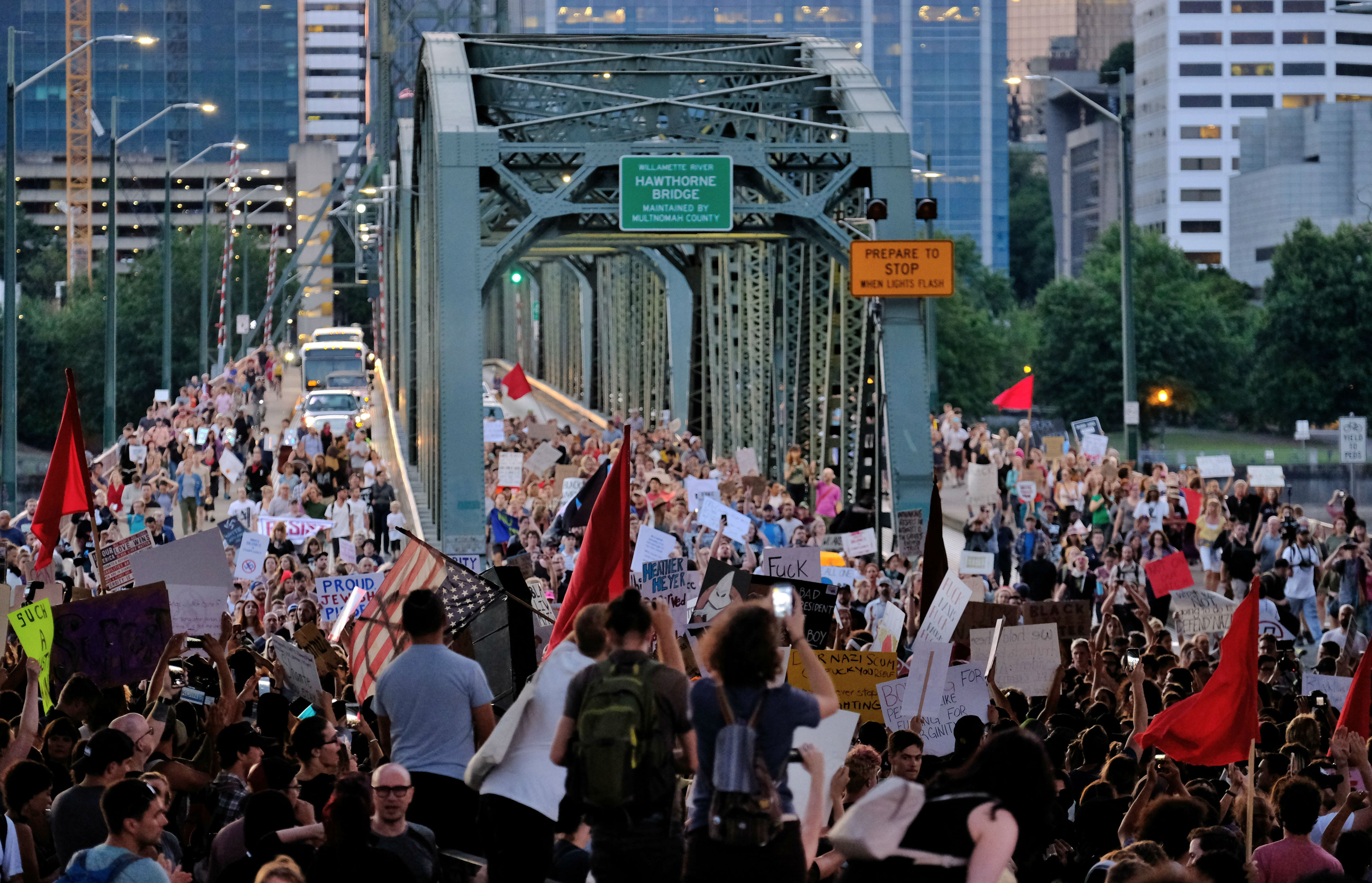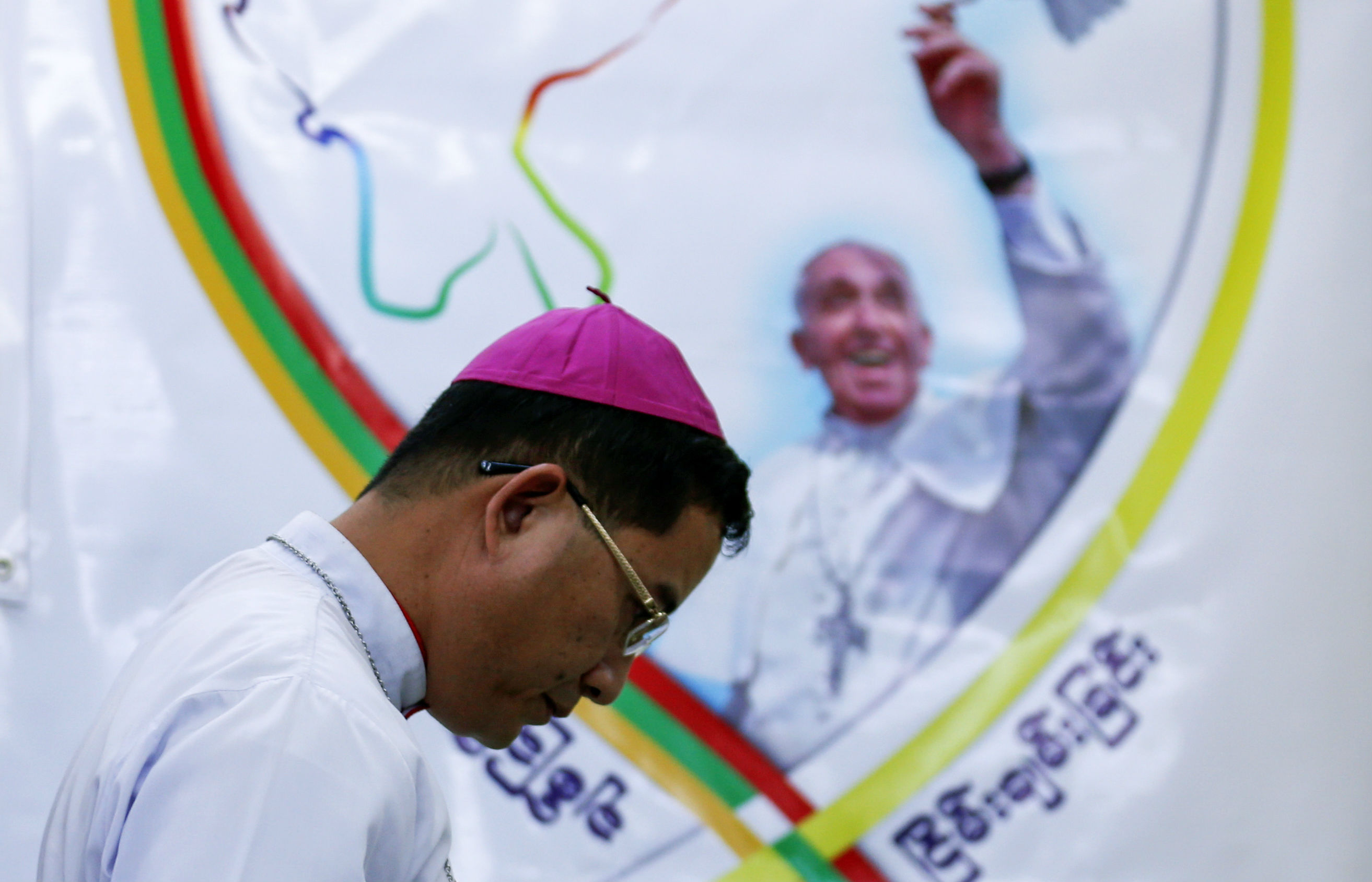Pope Francis will make the first ever papal visit to Myanmar later this year, in a trip that is set to highlight the plight of persecuted Muslims in the country and the Vatican’s increased diplomatic influence in the east.
On Monday (28 August) the Holy See announced that Francis will head to the country formerly known as Burma for a three day visit from 27 to 30 November travelling to the cities of Yangon and Nay Pyi Taw, and then to neighbouring Bangladesh until 2 December.
The news comes less than four months after the Holy See and Myanmar announced they were establishing full diplomatic relations, following a meeting between the Pope and Aung Sang Suu Kyi, the Nobel peace price winner and the country’s de facto leader, in the Vatican.
Combining the visit with a trip Bangladesh, an overwhelmingly Muslim country where Christians make up just 0.4 per cent of the population, will further underline the Pope’s credentials as a leader respected by the Islamic world.
While a detailed programme of the South Asia trip has yet to be unveiled, it is likely to see the Pope speak about the Rohingya, a group of around one million stateless Muslims who survive in a precarious condition on the Myanmar-Bangladesh border.
A day before his November visit was announced Francis used his Sunday Angelus address to call for an end to violence against the group. In February he described them as “our brothers and sisters who are who are being chased from Myanmar” due to their faith.
Since 2012 attacks on the Muslim minority in the majority Buddhist country have driven hundreds of thousands into refugee camps and across the border into Bangladesh.
The persecution, which has seen Buddhist monks attack Rohingya, is being described as ethnic cleansing by United Nations agencies and human rights groups. A recent outbreak of violence in Myanmar’s Rakhine region between the Burmese army and Rohingya militants has seen 98 people die.
Controversially, Aung San Suu Kyi has so far refused to condemn violence against the Rohingya, with the conflict a complex mix of nationalism and religion.
But when she met the Pope in May he gave her a copy of his hard-hitting message for the world day of peace, which stresses the need for non-violent strategies to resolve conflicts, along with a bronze sculpture representing the words of Isaiah 32:15 “the wilderness will become a fruitful field.” This, its description read, shows “the dry, thorny branch that blossoms and bears fruit symbolising the passage from selfishness to sharing, from war to peace.”
Meanwhile, the thaw in relations between Myanmar and the Holy See is a boost to the Vatican as it pushes on with a long running aim to re-establish an embassy in China, which Myanmar borders.
Since his election the Jesuit Pope, who once dreamed of being a missionary in Japan, has focussed on going to countries on the peripheries and seeking to mediate in places of conflict. He’s also taken an interest in the east with trips to South Korea, Armenia, Azerbaijan, Georgia and the Philippines while naming cardinals in Myanmar, Laos, Bangladesh and Thailand.
A former British colony, Burma was ruled by military rule until 2010 when a new military backed civilian government replaced it. The army still plays a key role in the country and has been accused of extra-judicial killings of Rohingya.
PICTURE: Auxiliary Bishop John Saw Yaw Han of Yangon, Myanmar, general secretary of the Catholic Bishops' Conference of Myanmar, passes a poster of Pope Francis after a 28 August news conference about the pontiff's 27-30 November visit to the country



 Loading ...
Loading ...